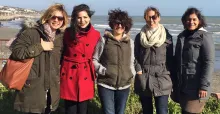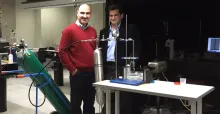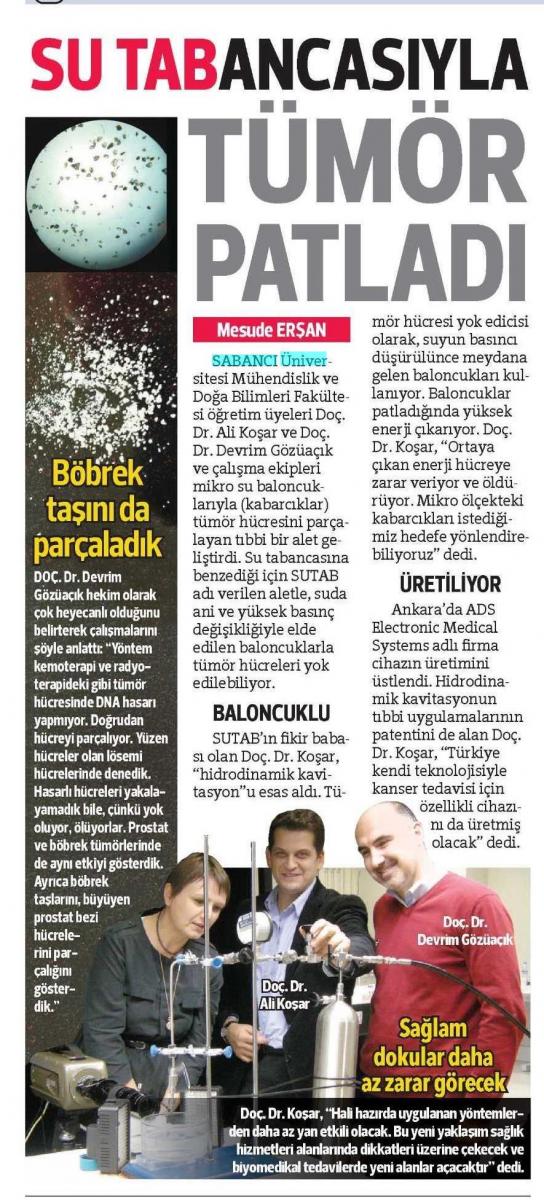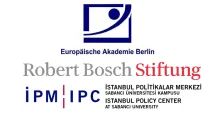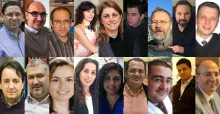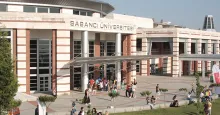27/01/2015
Trainings were held for the female inmates and guards of the Adana Karataş Penitentiary as part of the “Mor Güvercin - Purple Dove” project implemented by the Sabancı University Gender and Women’s Studies Forum in association with the Youth Re-autonomy Foundation of Turkey and the KAMER Foundation with the approval and cooperation of the Ministry of Justice General Directorate of Penitentiaries, the financial support of the European Union Central Finance and Contracts Unit and the consultancy of the Ministry of Family and Social Policy.

On the first day of training between January 12 and 15, 2015, project introduction seminars were held for female inmates and guards, and the importance of NGO work in penitentiaries was explained. On the second and third days, female inmates were separated into 12-25 and 25 and above age groups for training. The training provided by KAMER on the second day focused on the themes of violence and discrimination. On the third day, the Sabancı University Gender and Women’s Studies Forum held a workshop on “Gender.” Attorney Cansu Selmin Demir facilitated a workshop on “Women’s Rights.” On the fourth day of the project, Associate Professor Aslı Akdaş Mitrani gave training on “The Role of Prison Personnel and Psycho-Social Services in Penitentiary Relations” to guards and personnel.
Prior to the activity in Adana, a four-day project was held in the Denizli Bozkurt Women’s Open Prison, where 300 inmates attended a seminar titled "Post-Release Life and Advice-Support Mechanisms.” The seminar was joined by YRFT, KAMER, local women’s NGOs, the Denizli Bar Association and experts from Violence Prevention and Monitoring Centers (ŞÖNİM). Group sessions on discrimination, women’s rights and gender issues were held with 40 women in the 18 to 25 and 25 and above age groups. A seminar on legal rights was held with 10 girls between the ages of 12 and 18, and a workshop on the importance of NGO work in penitentiaries was given to 12 guards.
The project will be repeated in the Ankara Sincan Women’s Penitentiary on February 16-17-18-19 and in the Izmir Şakran Women’s Penitentiary on March 23-24-25-26.
About the project:
The Mor Güvercin-Purple Dove Project is based on the idea that women’s shelter homes planned to be commissioned in 24 provinces around Turkey may be a viable alternative for women who have been imprisoned and seek to rejoin social life in a disadvantaged position.
The project aims to improve the visibility of female inmates and provide them with alternatives that will generate value in post-release life while seeking to develop relationships among local NGOs, women’s shelters and penitentiaries. Other objectives of the project are to reveal the vulnerability of prison inmates to violence against women, help inmates gain a sense of women’s rights, and inform them about women’s shelter homes.
At the end of the project:
- 120 female inmates in the 12-25 and 25 and above age groups in women’s penitentiaries in 4 provinces will have received knowledge about women’s rights, gender and violence against women.
- 400 inmates in 4 provinces will have learned more about women’s organizations and shelter homes for their post-release use, and have gained awareness about their rights.
- 40 guards and 12 psycho-social services specialists (52 personnel in total) assigned to women’s penitentiaries will have received information about women’s rights and civil society, and have developed closer ties to civil society.
- One guard from each penitentiary (4 in total) will have been chosen to liaise between penitentiaries and women’s shelter homes and NGOs, acting as an NGO representative.
- The project will have contributed to former inmates utilizing women’s shelters in 24 provinces of Turkey post-release.
- Local women’s nongovernmental organizations will have assumed liaison role between women’s shelter homes and penitentiaries.
The project is implemented by the Youth Re-autonomy Foundation of Turkey, active in the area of juvenile delinquency since 1992, in association with the Sabancı University Gender and Women’s Studies Forum and the KAMER Foundation with the approval and cooperation of the Ministry of Justice General Directorate of Penitentiaries, the financial support of the European Union Central Finance and Contracts Unit and the consultancy of the Ministry of Family and Social Policy. The project began in February 2014 and will continue for 18 months in four women’s penitentiaries in Turkey (Ankara, Adana, Izmir and Denizli).

